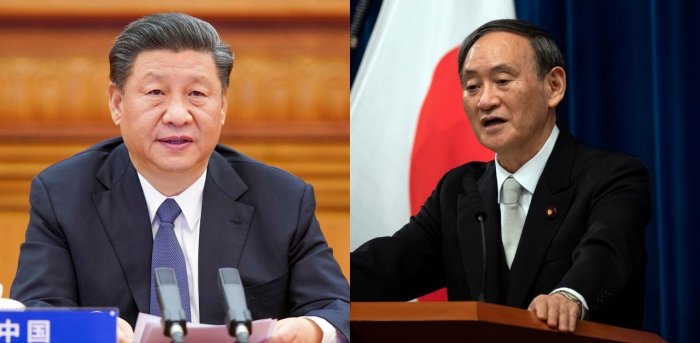The Japanese economic offensive against the Chinese seems to be going on with turbo boost. Earlier in 2020, Tokyo had set up a fund to support countries monetarily to move out of China to countries like India and Vietnam as well as some Southeast Asian countries too. Now, with the countries moving out of China en-mass, Japan has forced a second wave of economic offensive over the Chinese Communist Party. Over half of Japanese businesses in Vietnam and India have plans to expand their in-country operations, a recent survey showed, a sign of a shift toward reducing reliance on China as a production base in what is known as a “China plus one” strategy.
The Chinese Communist Party under Xi Jinping was already taking the confrontation with Tokyo to the next level with giving its Coast Guard to open fire on vessels which transgress into territories which China claims as its own as well as keeping up activity in the region around Senkaku Islands which Japan claims and controls as its own. However, if the decision to diversify its manufacturing sources last year was a major decision by Japan, now it has taken the efforts to a whole another level. Japanese companies are now expanding their operations in India, Vietnam and other countries which will overshadow the operations in China by a long margin.
In the online survey conducted by Japanese staffing firm Pasona Group Inc. last December, 57 per cent of Japanese companies in Vietnam and 55 per cent in India said they will expand operations in the host countries, compared with the average of 39 per cent among all 11 countries and regions polled. And in contrast, Hong Kong stood lowest at only 13 per cent in the wake of deterioration in the trade environment which could be attributed to China’s dismissal of pro-democracy lawmakers and crackdowns on democracy activists, according to the same survey.
The survey tells a very pertinent reality regarding the ability and intent of the Japanese government to decrease its dependence on the Chinese supply chains for the simple fact that the Xi Jinping-led Chinese Communist Party is acting in an aggressive manner and non-considerate of the problems and concerns of its neighbours.
On Sunday, Chinese Coast Guard vessels entered the Japanese territorial waters near the Senkaku Islands for the second day in a row. The Chinese vessels targeted a Japanese fishing boat and followed it after intruding into Japan’s waters. Yet, the Chinese vessels were shooed away by Japan. The incident, however, revealed that Beijing is desperate to step up aggression but Tokyo is in no mood to hold back either.
In light of the current situation and the way in which China is acting, Japan has taken on the role of leading an anti-China front. The way it is leading the countries along with the Australians and Indians, China is not happy. And understanding the situation, Japan knows that pandering to China will not be a long-term situation.
The countries covered in the survey were the United States, Canada, Hong Kong, Taiwan, South Korea, Thailand, Vietnam, Malaysia, Singapore, Indonesia and India. Japan has launched a turbocharged offensive against the Chinese economic monopoly, by means of expanding the businesses of companies present in India and Vietnam at the expense of their operations in China.
